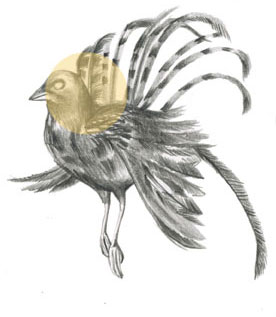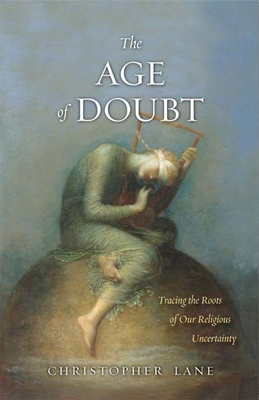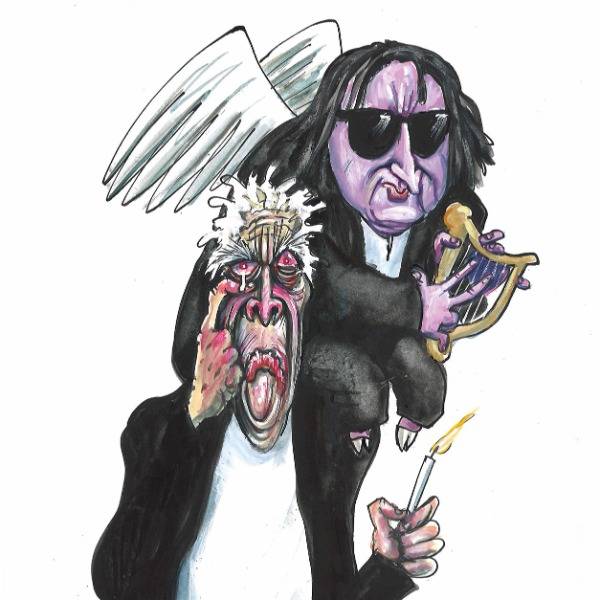 Our culture has become impoverished by certainty. In our overheated climate of polarised public debate, we give less credence to uncertainty; yet the crises that preoccupy us – including religious extremism – demand that we tolerate increasing amounts of it.
Our culture has become impoverished by certainty. In our overheated climate of polarised public debate, we give less credence to uncertainty; yet the crises that preoccupy us – including religious extremism – demand that we tolerate increasing amounts of it.
Doubt and its religious cousin agnosticism, a word rarely heard nowadays, may have fallen out of fashion, but they have much to teach us, despite the disdain of Richard Dawkins, who famously wrote in The God Delusion: “I am agnostic only to the extent that I am agnostic about fairies at the bottom of the garden.” He also quotes approvingly Quentin de la Bédoyère, science editor of the Catholic Herald, who in 2006 wrote that the Catholic historian Hugh Ross Williamson respected firm religious belief and certain unbelief, but “reserved his contempt for the wishy-washy boneless mediocrities who flapped around in the middle.”
To see doubters and freethinkers such as Herbert Spencer, Leslie Stephen, George Eliot, Thomas Huxley (who coined the word “agnostic”) and Darwin himself mocked in this way, given their intense engagement with complex human issues, only highlights the boldness of their thinking and the intellectual hubris of today’s unbridled certainty. The stridency of both Dawkins and de la Bédoyère misses how these and other Victorian intellectuals saw doubt as a creative force – inseparable from belief, thought, and debate, and a much-needed antidote to fanaticism and zealotry.
Ironically, it was the Victorians, often dismissed as prudish and uptight, who led the way to an open-mindedness and engagement with ambiguity that stands in stark contrast to the impoverishment of contemporary thinking about religious doubt and belief. The debates about religion and science that flared in the 19th century predate by almost two centuries the “new” atheism that has evolved today, undermining many of its claims for originality. As one scholar describes the Victorian era, “Never has an age in history produced such a detailed literature of lost faith, or so many great men and women of religious temperament standing outside organised religion.”
In fact, that explosion of religious doubt developed into a powerful cultural force. For the first time in history, doubt became a serious, widespread concern. It galvanised cultural debate and scientific inquiry. It inspired sermons, plays, and articles. It even rose to the level of a popular philosophy. In doing so, it upended almost everything the Bible had taught the Victorians about the world. “It was the epoch of belief,” the narrator of Dickens’s Tale of Two Cities famously explains, “it was the epoch of incredulity, … we had everything before us, we had nothing before us.”
The Victorians lived through times at least as tumultuous as our own, when their deity seemed to have abandoned them, traditions appeared to be losing their grip, and fundamental questions loomed about the well-being of the country and the future of the world. Every aspect of British social and cultural life was being questioned, and the country came as close as it ever would to publicly debating its religious beliefs. The conversation eventually included whether belief in God was necessary, or even possible, after scientists, philosophers and a host of writers had argued otherwise. As the country struggled to establish exactly what it did believe and why, the doctrines and beliefs that it had used to define itself imploded, under immense duress and opposition, leaving something closer to our present secular culture than had ever existed before.
By the 1880s, with freethinkers and agnostics publishing extensively in the United States as well, doubt on both sides of the Atlantic had become a cultural power that writers, philosophers, theologians and politicians had to reckon with. Prominent theologians were calling doubt “highly useful”, a necessary “borderland between knowledge and ignorance”. It had acquired the merit of putting things in “balance”, with legal scholars characterising its legal doctrine as “reasonable”. The argument that people should be given “the benefit of the doubt” was held up as an ideal, if not quite a universal, practice.
The world would never be the same.
In the thick of England’s roiling ecclesiastical culture at the start of the 19th century, botanists, biologists and geologists not only stirred debate at universities, but also inspired and vexed much of the country with increasingly irrepressible questions: was the planet really created in one day, as Genesis stipulated, or over aeons? Were the miracles described in the Bible credible or meant to be seen as symbolic? When the history of Christianity was fully examined, did its monotheistic arguments blend imperceptibly with the pagan beliefs that had preceded it? And, a critical issue for many Victorian believers and scholars, more urgent than before but by no means easy to settle: what was the precise ratio of God to man in Jesus of Nazareth?
In response to the doubts that grew from such questions, the Church of England and its nonconformist rivals warned congregations that doubt wasn’t just sinful and immoral, but a condition marred by emptiness and despair. “Consider the miseries of wives and mothers losing their faith in Scripture,” urged Cardinal John Henry Newman, as some doubters tried to cling to their faith by focusing on the plight of those who had lost theirs.
 The strategy backfired, however, and sent the Church into defensive retreat. As the scholar Joseph Altholz asks, “Could the rising generation, self-consciously devoted to truth but increasingly aware of disturbing facts, be expected indefinitely to contain their doubts and profess an assurance which was decreasingly real?” Given the tension voiced at the time between reason and faith, the fervour that inspired the Victorians’ religious revival hastened its collapse. The Church was ill equipped to engage with scientific naturalism, rationalism, free thought and growing interest in liberalism; it confronted internal rifts over the very nature of belief and found that the evidence was not in its favour.
The strategy backfired, however, and sent the Church into defensive retreat. As the scholar Joseph Altholz asks, “Could the rising generation, self-consciously devoted to truth but increasingly aware of disturbing facts, be expected indefinitely to contain their doubts and profess an assurance which was decreasingly real?” Given the tension voiced at the time between reason and faith, the fervour that inspired the Victorians’ religious revival hastened its collapse. The Church was ill equipped to engage with scientific naturalism, rationalism, free thought and growing interest in liberalism; it confronted internal rifts over the very nature of belief and found that the evidence was not in its favour.
Fifteen years before Darwin published On the Origin of Species, the Scottish editor, writer, and publisher Robert Chambers anonymously brought out a book called Vestiges of the Natural History of Creation (1844). In it he argued that the progressive evolution of species was fully compatible with God-given laws. Vestiges reached a transatlantic and cross-European audience far larger than David Hume could secure with broadly compatible claims in the mid-18th century. Among Chambers’ fascinated, sometimes horrified, readers were Queen Victoria, Abraham Lincoln, Alfred Tennyson, Ralph Waldo Emerson, Florence Nightingale, Benjamin Disraeli and Charles Darwin.
The book became a widespread topic of conversation across Britain in particular, and put doubt and evolution at the forefront of countless public, household and church-based discussions. Indeed, one reason the book was so effective was because it gave readers a license to discuss evolution without their being automatically dismissed or condemned as irreligious.
While the fields of geology, palaeontology, botany and biology were hastening the growth of doubt in Victorian England, the established Church struggled to contain and resist it. Doubters such as the novelist and future historian J Anthony Froude often found themselves in the middle, shunned by friends and, in his case, disinherited by his father, an archdeacon. As “honest doubt” (named and embraced by Tennyson after he read Vestiges) required that he and similar intellectuals live without the answer, they weathered intense intellectual pressure, with only pockets of secularism to sustain them. Then as now, doubt requires strength – it is not an easy or straightforward position to maintain.
The impact of such doubt grew on both sides of the Atlantic, with subscription rates for freethinking journals rising substantially and a growing number of articles appearing on the topic. Their titles shifted significantly from pleas for “Deliverance from Doubt” (1857) to more balanced analyses of “Faith, Doubt, and Reason” (1863), as scholars began to weigh doubt’s function and value, both within and beyond theology. The idea that doubt was a sin and a moral failing, still widely held in the 1850s, gave way to a new and different emphasis: doubt was instead an intellectual obligation, even an ethical necessity. It represented a principled position. It was not a sign of emotional weakness or a moral failing, but exactly the reverse.
One of the most prominent thinkers to advance that claim was Herbert Spencer. The polymath sociologist, philosopher and biologist argued in First Principles (1862) that religion and science must grapple with “the Unknowable”, a blind spot in human understanding that faith had once seemed to fill. One couldn’t dismiss the unknowable, he advised, as merely an outgrowth of religious mythology. To do so was to fall into a new trap (a different kind of absolutism), which saw everything as driven or explained by material forces. For science as for religion, the unknowable remained a quandary. It was a reminder of what Spencer said is “utterly inscrutable” to us, and likely to remain so. In their different ways, he thought, religion and science implicitly concede that human understanding is built on “relative” knowledge. They also imply that such gaps in understanding will remain.
A similarly robust defence of doubt came from Leslie Stephen, father of Virginia Woolf and Vanessa Bell. In 1876 Stephen published a bracing polemic in the Fortnightly Review called “An Agnostic’s Apology”—with “apology” assuming its traditional meaning as a justification or formal defence, rather than as an expression of regret. Accusatory, even sarcastic, the essay was the first on agnosticism to be published by someone who not only applied the term to himself, but also upheld its value against what he saw as the bankruptcy of Church doctrine. “Man knows nothing of the Infinite and Absolute,” Stephen insisted, silently adopting Spencer’s position. “Knowing nothing”, then, man “had better not be dogmatic about his ignorance.”
Yet it was Thomas Huxley, Darwin’s staunchest defender (and so-called bulldog), who not only coined the adjective “agnostic” in 1869, but argued strenuously for a seemingly oxymoronic “agnostic faith”. Huxley stated his rationale and advice clearly: “In matters of the intellect, follow your reason as far as it will take you. [But] do not pretend that conclusions are certain which are not demonstrated or demonstrable.”
Huxley’s deliberation on doubt may have encouraged a perception, still widespread today, that agnosticism resembles tepid hedging and hovering indecisiveness, born of a desire to have things both ways. In the latest incarnation of that assumption, Richard Dawkins in The God Delusion lets a “muscular Christian preacher” he recalls from his schooldays mock agnostics as “namby-pamby, mushy pap, weak-tea, weedy, pallid fence-sitters”.
But Huxley’s agnostic stance was enormously robust. It tackled head-on such broad problems as religious sectarianism and zealotry without at the same time equating science with certainty. As Huxley put it, representing agnosticism more as a position “against Gnosticism” than as a state of “awaiting Gnosticism”, Christianity had not solved the problem of existence and was not likely to do so.
The Church continued to declare otherwise, but by the 1880s its statements failed to satisfy and reassure large sections of the public, who debated, argued and published their doubts with a growing reassurance that there was sufficient freedom to do so. Some returned to religion a decade later, but the nation’s embrace of free thought and secularism proved to be irresistible and unstoppable (church attendance in Britain now hovers around 15 per cent; in the United States, according to a Gallup poll last year, that number is greater than 43 per cent).
Despite his forceful defence of Darwin and agnosticism, however, Huxley did not embrace full-blown atheism. He acknowledged “a pretty strong conviction that the problem [of existence] was insoluble”, a position that asks doubt and intellectual inquiry to replace hedging, complacency and anything resembling easy acquiescence.
 Huxley’s position certainly did not mean he was giving a pass to religion – or, for that matter, equating gnosticism with knowledge. In his 1889 essay “Agnosticism”, he let the term “gnosticism” stand for all the Abrahamic religions – Christianity, Judaism and Islam – though he made Christianity briefly epitomise them. “People who talk about the comforts of belief appear to forget its discomforts,” he declared. For Huxley, such discomforts included “the harm done to the citizen by the … uncharitableness of sectarian bigotry; … by the spirit of exclusiveness and domination of those that count themselves pillars of orthodoxy; … by the restraints on the freedom of learning and teaching which the Church exercises, when it is strong enough; … [and] by the introspective hunting after sins”, to say nothing of “the fear of theological error and the overpowering terror of damnation, which have accompanied the Churches like their shadow”.
Huxley’s position certainly did not mean he was giving a pass to religion – or, for that matter, equating gnosticism with knowledge. In his 1889 essay “Agnosticism”, he let the term “gnosticism” stand for all the Abrahamic religions – Christianity, Judaism and Islam – though he made Christianity briefly epitomise them. “People who talk about the comforts of belief appear to forget its discomforts,” he declared. For Huxley, such discomforts included “the harm done to the citizen by the … uncharitableness of sectarian bigotry; … by the spirit of exclusiveness and domination of those that count themselves pillars of orthodoxy; … by the restraints on the freedom of learning and teaching which the Church exercises, when it is strong enough; … [and] by the introspective hunting after sins”, to say nothing of “the fear of theological error and the overpowering terror of damnation, which have accompanied the Churches like their shadow”.
A more astute contemporary thinker than Dawkins on the issue of agnosticism, in its broadest, existential sense, is the American playwright John Patrick Shanley. In the preface to his Pulitzer Prize-winning play Doubt (also a film), he argues that “doubt requires more courage than conviction does, and more energy; because conviction is a resting place and doubt is infinite – it is a passionate exercise.” While such questioning takes us past a point of comfort, he claims, it is “doubt (so often experienced initially as weakness) that changes things”, and thus represents “nothing less than an opportunity to reenter the Present”.
Consider what happens in Shanley’s play. Moments before the final curtain, his protagonist, Sister Aloysius, experiences an acute crisis. For most of the play, she believes that her colleague Father Flynn has molested one of their male students. But after confronting him and hearing his astonished reaction to her accusations, Sister Aloysius grows uncertain, then entertains the possibility that she might be wrong. The scene builds to a fleeting moment of self-reflection, though one coming too late to reassure her or the audience. “I have doubts!” she gasps, “I have such doubts!” As Sister Aloysius crumples, “bent with emotion”, the audience is invited to share her uncertainty. The immediate question, “Is Flynn guilty or innocent?”, rises to the status of a general condition.
For the Victorians, that condition came to be seen as a central fact of human experience, and it took knowledge, integrity, and understanding to face it. It offered them, as it can offer us, a productive, even hopeful way of reaching hard-won conviction that permits dissent, sharpens insight, and inspires creativity in the place of dogma and rote learning. It is a profoundly humanistic impulse that we need now, more than ever.
This essay is adapted from Christopher Lane's new book The Age of Doubt: Tracing the Roots of Our Religious Uncertainty published by Yale University Press
Illustrations by Irene Fuga

